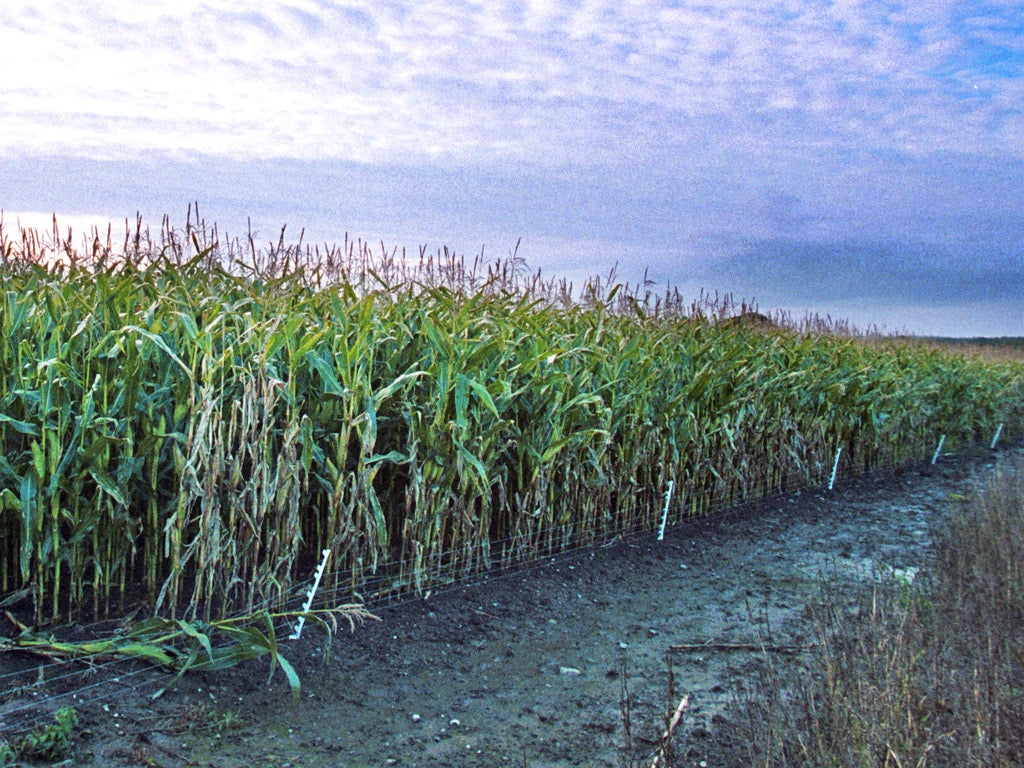EU regulations on genetically modified crops prevent Britain's agricultural progress, say MPs
A Parliamentary committee says Europe's guidelines are “not fit for purpose”

Your support helps us to tell the story
From reproductive rights to climate change to Big Tech, The Independent is on the ground when the story is developing. Whether it's investigating the financials of Elon Musk's pro-Trump PAC or producing our latest documentary, 'The A Word', which shines a light on the American women fighting for reproductive rights, we know how important it is to parse out the facts from the messaging.
At such a critical moment in US history, we need reporters on the ground. Your donation allows us to keep sending journalists to speak to both sides of the story.
The Independent is trusted by Americans across the entire political spectrum. And unlike many other quality news outlets, we choose not to lock Americans out of our reporting and analysis with paywalls. We believe quality journalism should be available to everyone, paid for by those who can afford it.
Your support makes all the difference.European rules for regulating genetically modified plants are stopping potentially beneficial crops from being grown in the UK and should be overhauled, MPs will urge today.
Parliament’s Science and Technology Committee says that GM versions of staple crops are already being grown around the world, increasing crop yields while cutting the need for pesticides.
But it warns that the EU’s regulatory regime is “not fit for purpose” because it assumes, against the scientific evidence, that GM plants pose a greater risk than conventional crops.
The MPs’ report also urges the Government to avoid using the “overly simple” term GM – which they said had become a “lightning rod” for wider concerns about the environment and big business. The MPs say the term fails to acknowledge the wide range of techniques that can now be used to introduce genetic changes in crops.
The report also criticises campaign groups like Greenpeace which fiercely oppose GM technology. It says anti-GM campaigners should accept that their opposition is based on their values and should not conceal it behind “false claims of scientific uncertainty and misleading statements regarding safety”.
“The scientific evidence is clear that crops developed using genetic modification pose no more risk to humans, animals or the environment than equivalent crops developed using more ‘conventional’ techniques,” said the committee’s chairman, Andrew Miller.
“Unfortunately, the way the EU’s regulatory system works means that countries opposed to genetically modified crops can block their growth in other countries.
“This has driven research activity out of the EU and put at risk the UK’s ability to be a global player in advancing agricultural technology. Regulatory reform is no longer merely an option, it is a necessity.”
The committee’s conclusions appear to have the backing of ministers, and the Environment Secretary, Liz Truss, called on Europe yesterday to “embrace scientific advances” in the technology.

EU agriculture ministers recently agreed to allow countries to “opt out” of all GM crops, but they can still potentially block the use of such crops in countries that want to go ahead on their own.
Mr Miller said it was important that progress was made in improving global food security. “To meet the huge challenge of feeding a burgeoning global population, using fewer resources, as our climate becomes increasingly unstable, we will need to use all the tools at our disposal, be they social, political, economic or technological,” he said.
“A regulatory system which can take decades to reach a decision cannot possibly be considered fit for purpose.”
“For the sake of our farmers, consumers and the UK’s world-leading science sector we must repatriate national decision-making on food and crop safety.”
However, anti-GM campaigners dismissed the MPs’ findings. Doug Parr, Greenpeace UK’s chief scientist, said “MPs seem to have embraced the GM lobby’s view,” while the Soil Association said recent polling by the Food Standards Agency showed public concern over GM foods was on the increase.
Peter Melchett, the association’s policy director, said: “The Soil Association reminded [the Committee] that the Government had spent millions of pounds of public money… researching whether GM crops would be beneficial or damaging for British wildlife.
“This research found that, overall, GM crops would have a negative impact on farmland, birds, wild flowers and other wildlife, something which the Committee… fails to mention.”
However, this research is more than 10 years old and examined only one type of herbicide-resistant GM crop, GMHT maize. It concluded that growing this “was better for many groups of wildlife than conventional maize”. Growing GM rape was less good for wildlife, it found.
Join our commenting forum
Join thought-provoking conversations, follow other Independent readers and see their replies
Comments